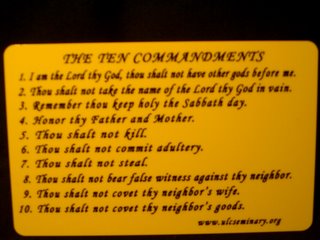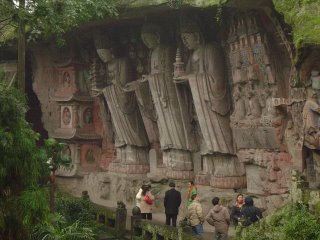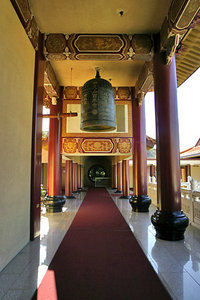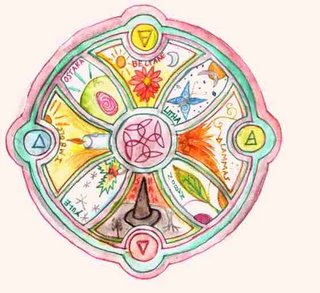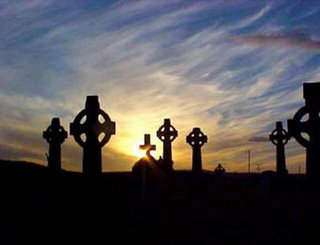Writer: Matthew
Place Written: Palestine
Writing Completed: c. 41 C.E.
Time Covered: 2 B.C.E.“33 C.E
Introducing Jesus and news of "the kingdom of the heavens" (1:4:25). Logically, Matthew begins with Jesus' genealogy, proving Jesus' legal right as heir of Abraham and David. Thus, the attention of the Jewish reader is arrested. Then we read the account of Jesus' miraculous conception, his birth in Bethlehem, the visit of the astrologers, Herod's angry slaying of all the boys in Bethlehem under two years old, Joseph and Mary's flight into Egypt with the young child, and their subsequent return to dwell in Nazareth. Matthew is careful to draw attention to the fulfillments of prophecy to establish Jesus as the foretold Messiah.”Matt. 1:23”Isa. 7:14; Matt. 2:1-6”Mic. 5:2; Matt. 2:13-18”Hos. 11:1 and Jer. 31:15; Matt. 2:23”Isa. 11:1, footnote.
Matthew's account now skips down through nearly 30 years. John the Baptizer is preaching in the wilderness of Judea: "Repent, for the kingdom of the heavens has drawn near." (Matt. 3:2) He is baptizing the repentant Jews in the river Jordan and warning the Pharisees and Sadducees of wrath to come. Jesus comes from Galilee and is baptized. Immediately God's spirit descends on him, and a voice from the heavens says: "This is my Son, the beloved, whom I have approved." (3:17)
Jesus is then led into the wilderness, where, after fasting 40 days, he is tempted by Satan the Devil. Three times he turns Satan back by quotations from God's Word, saying finally: "Go away, Satan! For it is written, 'It is the LORD your God you must worship, and it is to him alone you must render sacred service.'"”4:10.
"Repent, you people, for the kingdom of the heavens has drawn near." These electrifying words are now proclaimed in Galilee by the anointed
Jesus. He calls four fishermen from their nets to follow him and become "fishers of men," and he travels with them "throughout the whole of Galilee, teaching in their synagogues and preaching the good news of the kingdom and curing every sort of disease and every sort of infirmity among the people."”4:17, 19, 23.
The Sermon on the Mount (5:1“7:29). As crowds begin to follow him, Jesus goes up into the mountain, sits down, and begins teaching his disciples. He opens this thrilling discourse with nine 'happinesses': Happy are those who are conscious of their spiritual need, those who mourn, the mild-tempered, those who hunger and thirst for righteousness, the merciful, the pure in heart, the peaceable, those persecuted for righteousness' sake, and those reproached and lyingly spoken against. "Rejoice and leap for joy, since your reward is great in the heavens." He calls his disciples "the salt of the earth" and "the light of the world" and explains the righteousness, so different from the formalism of the scribes and Pharisees, that is required for entering the Kingdom of the heavens. "You must accordingly be perfect, as your heavenly Father is perfect."”5:12-14, 48.
Jesus warns against hypocritical gifts and prayers. He teaches his disciples to pray for the sanctification of the Father's name, for His Kingdom to come, and for their daily sustenance. Throughout the sermon Jesus holds the Kingdom to the fore. He cautions those who follow him not to worry about or work merely for material riches, for the Father knows their actual needs. "Keep on, then," he says, "seeking first the kingdom and his righteousness, and all these other things will be added to you."”6:33.
The Master counsels on relations with others, saying: "All things, therefore, that you want men to do to you, you also must likewise do to them." The few that find the road to life will be those who are doing the will of his Father. The workers of lawlessness will be known by their fruits and will be rejected. Jesus likens the one who obeys his sayings to the "discreet man, who built his house upon the rock-mass." What effect does this discourse have on the crowds who are listening? They are "astounded at his way of teaching," for he teaches "as a person having authority, and not as their scribes."7:12, 24-29.
Kingdom preaching expanded (8:1“11:30).
Jesus performs many miracles—healing lepers, paralytics, and the demon-possessed. He even demonstrates authority over the wind and waves by calming a storm, and he raises a girl from the dead. What compassion Jesus feels for the crowds as he sees how skinned and thrown about they are, "like sheep without a shepherd"! As he says to his disciples, "the harvest is great, but the workers are few. Therefore, beg the Master of the harvest to send out workers into his harvest."”9:36-38.
Jesus selects and commissions the 12 apostles. He gives them definite instructions on how to do their work and emphasizes the central doctrine of their teaching: "As you go, preach, saying, 'The kingdom of the heavens has drawn near.'" He gives them wise and loving admonition: "You received free, give free." "Prove yourselves cautious as serpents and yet innocent as doves." They will be hated and persecuted, even by close relatives, but Jesus reminds them: "He that finds his soul will lose it, and he that loses his soul for my sake will find it." (10:7, 8, 16, 39) On their way they go, to teach and preach in their assigned cities! Jesus identifies John the Baptizer as the messenger sent forth before him, the promised "Elijah," but "this generation" accept neither John nor him, the Son of man. (11:14, 16) So woe to this generation and the cities that have not repented at seeing his powerful works! But those who become his disciples will find refreshment for their souls.
Pharisees refuted and denounced (12:1-50). The Pharisees try to find fault with Jesus on the Sabbath issue, but he refutes their charges and launches into a scathing condemnation of their hypocrisy. He tells them: "Offspring of vipers, how can you speak good things, when you are wicked? For out of the abundance of the heart the mouth speaks." (12:34) No sign will be given them except that of Jonah the prophet: The Son of man will be three days and nights in the heart of the earth.
Seven Kingdom illustrations (13:1-58). Why does Jesus speak in illustrations? To his disciples he explains: "To you it is granted to understand the sacred secrets of the kingdom of the heavens, but to those people it is not granted." He pronounces his disciples happy because they see and hear. What refreshing instruction he now provides for them! After he explains the illustration of the sower, Jesus gives the illustrations of the weeds in the field, the mustard grain, the leaven, the hidden treasure, the pearl of high value, and the dragnet—all portraying something in connection with "the kingdom of the heavens." However, the people stumble at him, and Jesus tells them: "A prophet is not unhonored except in his home territory and in his own house."—13:11, 57.
Further ministry and miracles of "the Christ" (14:1–17:27).
Jesus is deeply affected by the report of the beheading of John the Baptizer at the order of spineless Herod Antipas. He miraculously feeds a crowd of 5,000 and more; walks on the sea; turns back further criticism from the Pharisees, who, he says, are 'overstepping the commandment of God because of their tradition'; heals the demon-possessed, the "lame, maimed, blind, dumb, and many otherwise"; and again feeds more than 4,000, from seven loaves and a few little fishes. (15:3, 30) Responding to a question by Jesus, Peter identifies him, saying: "You are the Christ, the Son of the living God." Jesus commends Peter and declares: "On this rock-mass I will build my congregation." (16:16, 18) Jesus now begins to speak of his approaching death and of his resurrection on the third day. But he also promises that some of his disciples "will not taste death at all until first they see the Son of man coming in his kingdom." (16:28) Six days later, Jesus takes Peter, James, and John up into a lofty mountain to see him transfigured in glory. In a vision, they behold Moses and Elijah conversing with him, and they hear a voice from heaven saying: "This is my Son, the beloved, whom I have approved; listen to him." After coming down from the mountain, Jesus tells them that the promised "Elijah" has already come, and they perceive that he is speaking about John the Baptizer.—17:5, 12.
Jesus counsels his disciples (18:1-35). While at Capernaum Jesus talks to the disciples about humility, the great joy of recovering a stray sheep, and settling offenses between brothers. Peter asks: 'How many times must I forgive my brother?' and Jesus answers: "I say to you, not, Up to seven times, but, Up to seventy-seven times." To add force to this, Jesus gives the illustration of the slave whose master forgave him a debt of 60 million denarii. This slave later had a fellow slave imprisoned because of a debt of only 100 denarii, and as a result, the merciless slave was likewise handed over to the jailers. Jesus makes the point: "In like manner my heavenly Father will also deal with you if you do not forgive each one his brother from your hearts."”18:21, 22, 35.
Closing days of Jesus' ministry (19:1“22:46). The tempo of events quickens and tension mounts as the scribes and Pharisees become more incensed at Jesus' ministry. They come to trip him up on a matter of divorce but fail; Jesus shows that the only Scriptural ground for divorce is fornication. A rich young man comes to Jesus, asking the way to everlasting life, but goes away grieved when he finds he must sell all he has and be a follower of
Jesus. After giving the illustration of the workers and the denarius, Jesus speaks again of his death and resurrection, and he says: "The Son of man came, not to be ministered to, but to minister and to give his soul a ransom in exchange for many."”20:28.
Jesus now enters the last week of his human life. He makes his triumphal entry into Jerusalem as 'King, mounted upon the colt of an ass.' (21:4, 5) He cleanses the temple of the money changers and other profiteers, and the hatred of his foes mounts as he tells them: "The tax collectors and the harlots are going ahead of you into the kingdom of God." (21:31) His pointed illustrations of the vineyard and of the marriage feast hit home. He skillfully answers the Pharisees' tax question by telling them to pay back "Caesar's things to Caesar, but God's things to God." (22:21) Likewise he turns back a catch question by the Sadducees and upholds the resurrection hope. Again the Pharisees come to him with a question on the Law, and Jesus tells them that the greatest commandment is to love God completely, and the second is to love one's neighbor as oneself. Jesus then asks them, 'How can the Christ be both David's son and his Lord?' Nobody can answer, and thereafter no one dares to question him.—22:45, 46.
'Woe to you, hypocrites' (23:1“24:2). Speaking to the crowds at the temple, Jesus delivers another scathing denunciation of the scribes and Pharisees. Not only have they disqualified themselves from entering into the Kingdom but they exert all their wiles to prevent others from entering. Just like whitewashed graves, they appear beautiful on the outside, but inside they are full of corruption and decay. Jesus concludes with this judgment against Jerusalem: "Your house is abandoned to you." (23:38) As he leaves the temple, Jesus prophesies its destruction.
Jesus gives 'sign of his presence' (24:3“25:46). On the Mount of Olives, his disciples question him about 'the sign of his presence and the conclusion of the system of things.' In answer Jesus points forward to a time of wars, 'nation against nation and kingdom against kingdom,' food shortages, earthquakes, an increasing of lawlessness, the earth-wide preaching of "this good news of the kingdom," the appointment of "the faithful and discreet slave . . . over all his belongings," and many other features of the composite sign that is to mark 'the arrival of the Son of man in his glory to sit down on his glorious throne.' (24:3, 7, 14, 45-47 25:31)
Jesus concludes this important prophecy with the illustrations of the ten virgins and of the talents, which hold forth joyful rewards to the alert and faithful, and the illustration of the sheep and the goats, which shows goatish people departing "into everlasting cutting-off, but the righteous ones into everlasting life."”25:46.
Events of Jesus' final day (26:1“27:66). After celebrating the Passover, Jesus institutes something new with his faithful apostles, inviting them to partake of unleavened bread and wine as symbols of his body and his blood. Then they go to Gethsemane, where Jesus prays. There Judas comes with an armed crowd and betrays Jesus with a hypocritical kiss. Jesus is taken to the high priest, and the chief priests and the entire Sanhedrin look for false witnesses against Jesus. True to Jesus' prophecy, Peter disowns him when put to the test. Judas, feeling remorse, throws his betrayal money into the temple and goes off and hangs himself. In the morning Jesus is led before the Roman governor Pilate, who hands him over to be impaled under pressure from the priest-incited mob who cry: "His blood come upon us and upon our children." The governor's soldiers make fun of his kingship and then lead him out to Golgotha, where he is staked between two robbers, with a sign over his head reading, "This is Jesus the King of the Jews." (27:25, 37) After hours of torture, Jesus finally dies at about three in the afternoon and is then laid in the new memorial tomb belonging to Joseph of Arimathea. It has been the most eventful day in all history!
Jesus' resurrection and final instructions (28:1-20). Matthew now climaxes his account with the very best of news. The dead Jesus is resurrected -- he lives again! Early on the first day of the week, Mary Magdalene and "the other Mary" come to the tomb and hear the angel's announcement of this joyful fact. (28:1) To confirm it, Jesus himself appears to them. The enemies even try to fight the fact of his resurrection, bribing the soldiers who had been on guard at the tomb to say, "His disciples came in the night and stole him while we were sleeping." Later, in Galilee, Jesus has another meeting with his disciples. What is his departing instruction for them? This: "Go . . . make disciples of people of all the nations, baptizing them in the name of the Father and of the Son and of the holy spirit." Would they have guidance in this preaching work? The last utterance of Jesus that Matthew records gives this assurance: "Look! I am with you all the days until the conclusion of the system of things."—28:13, 19, 20.
Why Beneficial
The book of Matthew, first of the four Gospels, truly provides an excellent bridge from the Hebrew Scriptures into the Christian Greek Scriptures. Unmistakably, it identifies the Messiah and King of The LORD's promised Kingdom, makes known the requirements for becoming his followers, and sets out the work that lies ahead for these on earth. First John the Baptizer, then
Jesus, and finally his disciples went preaching, "The kingdom of the heavens has drawn near." Moreover, Jesus' command reaches right down to the conclusion of the system of things: "And this good news of the kingdom will be preached in all the inhabited earth for a witness to all the nations; and then the end will come." Truly it was, and still is, a grand and wonderful privilege to share in this Kingdom work, including 'making disciples of people of all the nations,' working after the pattern of the Master.”3:2; 4:17; 10:7; 24:14; 28:19.
Matthew's Gospel is indeed "good news." Its inspired message was "good news" to those who heeded it in the first century of the Common Era, and The LORD God has seen to it that it has been preserved as "good news" until this day. Even non-Christians have been compelled to acknowledge the power of this Gospel, as, for example, the Hindu leader Mohandas (Mahatma) Gandhi, who is reported to have said to Lord Irwin, a former viceroy of India: "When your country and mine shall get together on the teachings laid down by Christ in this Sermon on the Mount, we shall have solved the problems not only of our countries but those of the whole world." On another occasion Gandhi said: "By all means drink deep of the fountains that are given to you in the Sermon on the Mount . . . For the teaching of the Sermon was meant for each and every one of us."
However, the whole world, including that part claiming to be Christian, continues with its problems. It has been left to a small minority of true Christians to treasure, study, and apply the Sermon on the Mount and all the other sound counsel of the good news according to Matthew and thereby derive inestimable benefits. It is profitable to study again and again Jesus' fine admonitions on finding the real happiness, as well as on morals and marriage, the power of love, acceptable prayer, spiritual versus material values, seeking the Kingdom first, having respect for holy things, and being watchful and obedient. Matthew chapter 10 gives Jesus' service instructions to those who take up preaching the good news of "the kingdom of the heavens." The many parables of Jesus carry vital lessons for all who 'have ears to hear.' Moreover, Jesus' prophecies, such as his detailed foretelling of 'the sign of his presence,' build strong hope and confidence in the future.”5:1“7:29; 10:5-42; 13:1-58; 18:1“20:16; 21:28“22:40; 24:3“25:46.
Matthew's
Gospel abounds with fulfilled prophecies. Many of his quotations from the inspired Hebrew Scriptures were for the purpose of showing these fulfillments. They provide indisputable evidence that Jesus is the Messiah, for it would have been utterly impossible to prearrange all these details. Compare, for example, Matthew 13:14, 15 with Isaiah 6:9, 10; Matthew 21:42 with Psalm 118:22, 23; and Matthew 26:31, 56 with Zechariah 13:7. Such fulfillments give us strong assurance, too, that all the prophetic forecasts of Jesus himself, recorded by Matthew, would in due course come true while God's glorious purposes with regard to "the kingdom of the heavens" reach fruition.
How exact God was in foretelling the life of the King of the Kingdom, even to minute details! How exact was the inspired Matthew in faithfully recording the fulfillment of these prophecies! As they reflect on all the prophetic fulfillments and promises recorded in the book of Matthew, lovers of righteousness can indeed exult in the knowledge and hope of "the kingdom of the heavens" as God's instrument for sanctifying his name. It is this Kingdom by Jesus Christ that brings untold blessings of life and happiness to the mild-tempered and spiritually hungry ones "in the re-creation, when the Son of man sits down upon his glorious throne." (Matt. 19:28) All of this is contained in the stimulating Gospel "according to Matthew."
--
Sincerely yours,
Judge Edward Singleton, D.D., CNSA
*******************************

